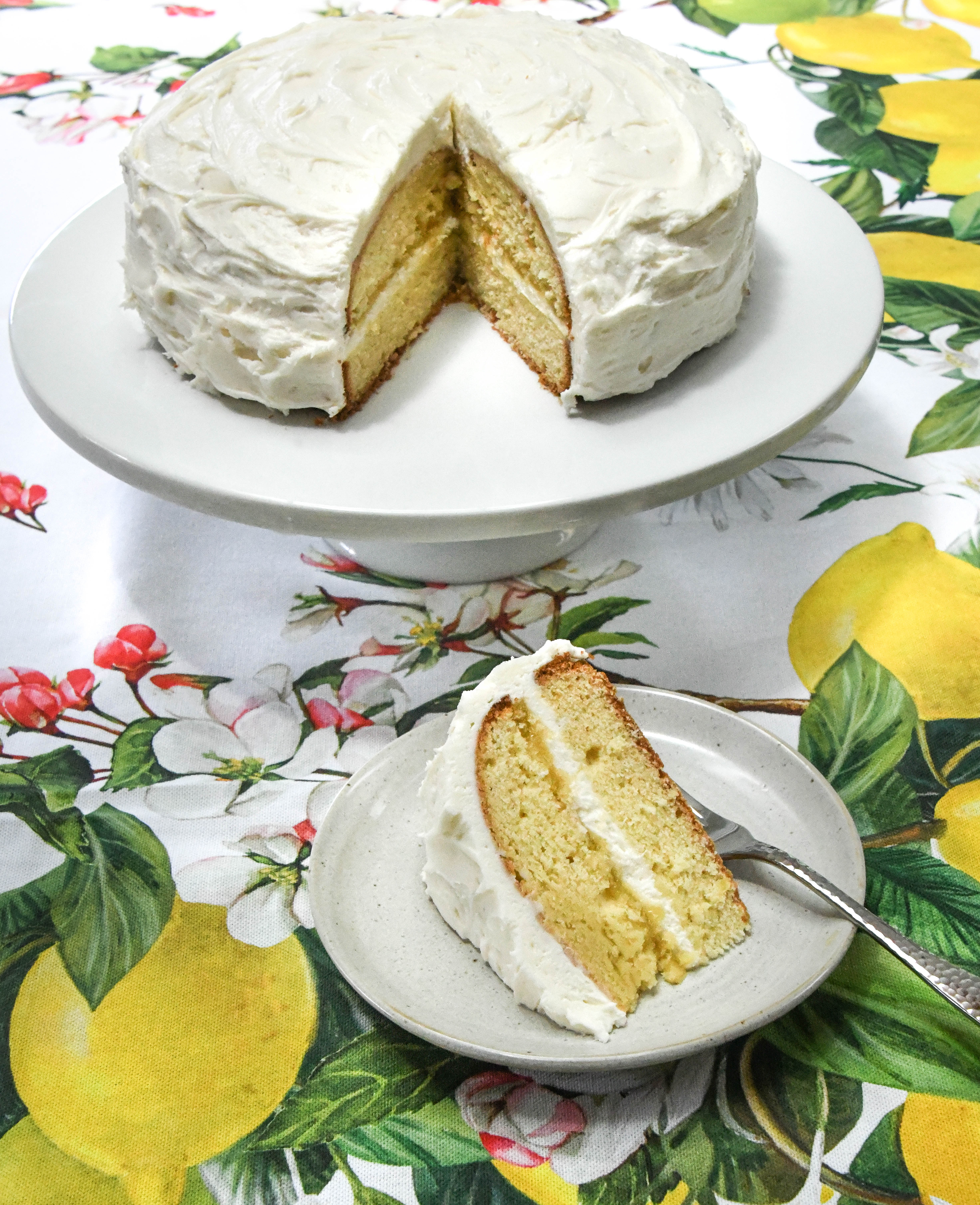
For such a delicious topping, lemon curd has been cursed with a rather unappetizing name. By definition, curd is the semi-solid created when acid is added to milk. True curds possess a rubbery and sometimes grainy texture. Lemon curd has a smooth, thick and creamy feel and sweetly tart taste. So, how did this British creation end up with such a misleading name?
The curd in “lemon curd”
In its earliest form lemon curd was the result of mixing lemon juice with cream. The watery part of this mixture, the whey, was drained off. What remained was lemon-flavored curds or lemon curds. By the late 1800s modern lemon curd had entered the kitchen. This new version consisted of eggs, lemon juice, sugar and butter and had a velvety texture. Although the ingredients had changed, the name remained the same.
A travel-inspired dessert
Similar to most of my recipes, this cake originated from a trip. Earlier this month I returned to Canterbury, England; high school students and English majors might recognize as the pilgrims’ destination in Geoffrey Chaucer’s The Canterbury Tales. While there, I stopped at Garage Coffee for a late afternoon coffee and sweet. Facing the choice of Victoria Sponge, which I feature in Luscious, Tender, Juicy, and Lemon Curd Cake, which I’ve never made, I went with the latter. Moist, flavorful and sweetly tart, Lemon Curd Cake was everything that I craved in a treat. That was how this recipe came to be.
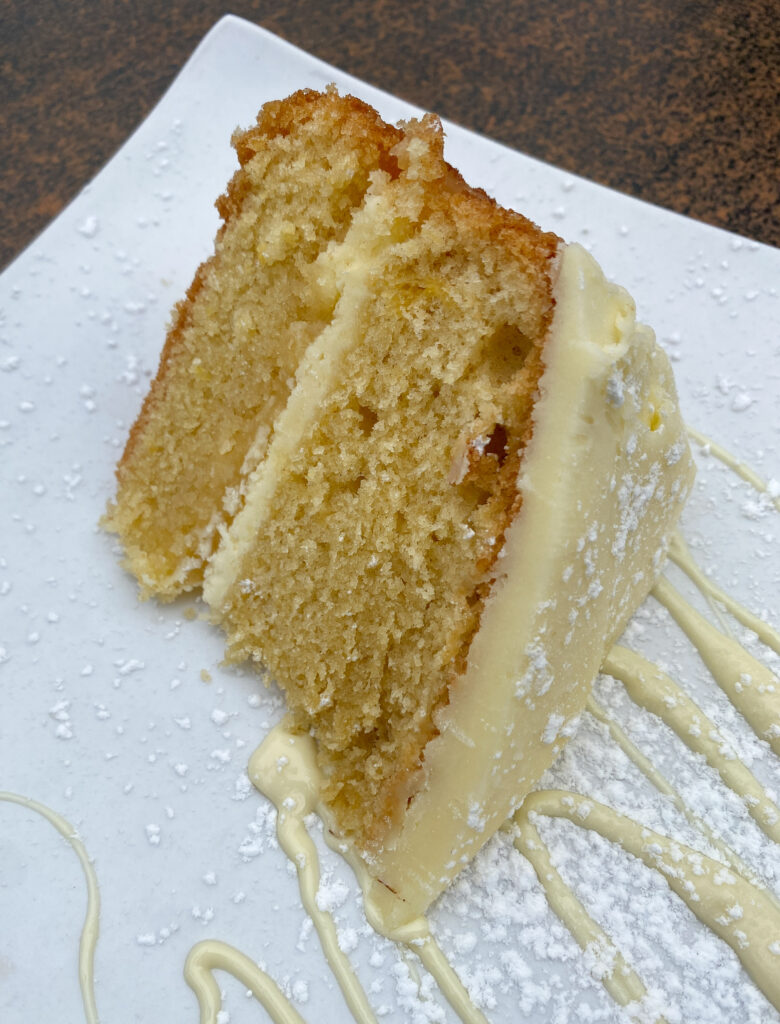
Lemon Curd Cake
You can purchase lemon curd in the jam/preserves aisle of most grocery stores or make you own.
Serves 8 to 10
Ingredients:
for the cake:
1 1/2 sticks (3/4 cup) unsalted butter, at room temperature
3/4 cup granulated sugar
3 large eggs
3 tablespoons lemon curd (homemade or store-bought)
Grated zest of 1 lemon
2 cups plus 2 tablespoons all-purpose flour
1 teaspoon baking powder
Pinch salt
for the frosting:
1 1/2 sticks (3/4 cup) unsalted butter, at room temperature
1/2 teaspoon vanilla extract
1/8 teaspoon lemon oil/lemon extract
1 1/2 pounds confectioner’s sugar, sifted
2 to 3 tablespoons lemon curd
Directions:
To make the cake:
Preheat the oven to 350 degrees Fahrenheit. Line the bottom of an 8-inch, round baking pan with parchment paper. Butter and then flour the pan. Set aside.
Using an electric hand or stand mixer, beat the butter and sugar until light and creamy, 1 to 2 minutes.
Scrape down the sides of the bowl with a spatula. Add the eggs, one at a time, to the butter mixture. Beat to incorporate and then scrape down the sides of the bowl after each addition.
Add the vanilla and grated lemon zest. Beat to combine
In a separate bowl whisk together the flour, baking powder and salt.
Add half of the flour mixture and beat the ingredients together until combined, less than 1 minute. Scrape down the sides of the bowl and add the remaining flour. Beat until combined.
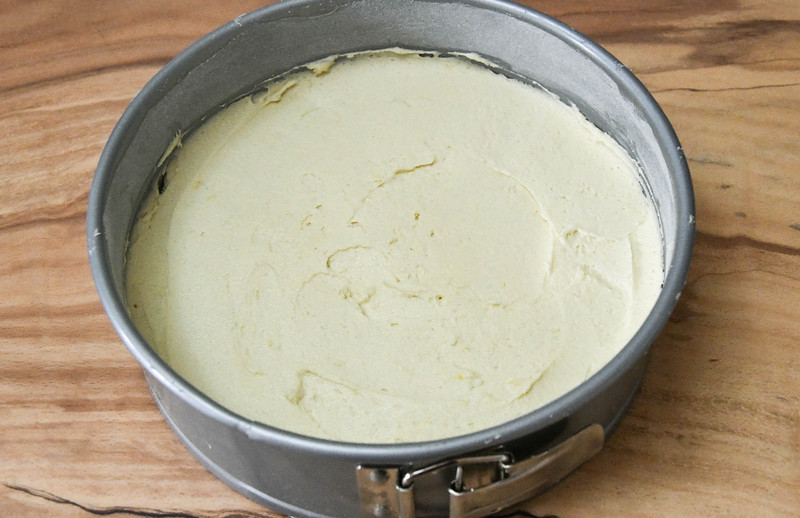
Spread the batter evenly in the prepared baking pan. Bake for 35 to 45 minutes, until the cake is golden on top and separating from the sides of the pan and a toothpick inserted in the center comes out clean.
Allow the cake to cool on a wire rack for 15 minutes. Invert the pan and place the cake on the cooling rack where it will remain until completely cooled.
To make the lemon frosting:
Once the cake has cooled completely, make the frosting. Place the butter, vanilla extract and lemon oil/lemon extract in a large bowl. Using an electric hand or stand mixer, beat the ingredients together until smooth, roughly 2 minutes.
Sift half of the confectioner’s sugar into the butter. Beat the two together until smooth, 1 to 2 minutes. Scrape down the sides of the bowl and sift in the remaining sugar. Beat until smooth, 1 to 2 minutes.
To assemble the cake:
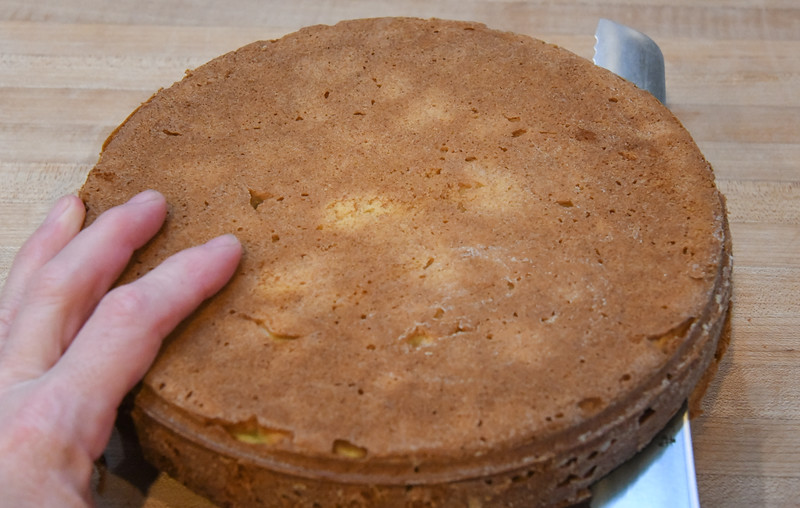
Put your cake on a clean, dry work surface. Place a long, serrated knife horizontally against the center of the cake. (See image above). Evenly slice the cake horizontally. Set half of the cake on the center of a cake stand or round platter. Leave the other half on your work surface. This will serve as the top layer of your cake and will be iced after the bottom layer.
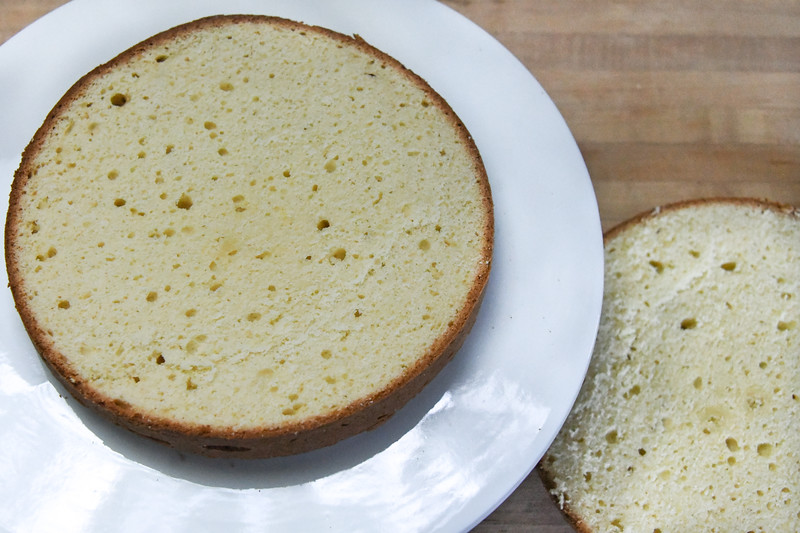
Using either an icing spatula or flat, wide knife, spread a thin layer of frosting over the cut side of bottom half of the cake. (You don’t really need to do a crumb layer, but I find it easier to frost the cake with it there.) You can then slather 2 to 3 tablespoons of frosting over it, followed by 2 to 3 tablespoons of lemon curd.
Place the top half of the cake onto the bottom, making sure that the two layers are even. Spread the remaining frosting over the top and sides of the cake. Slice and serve.